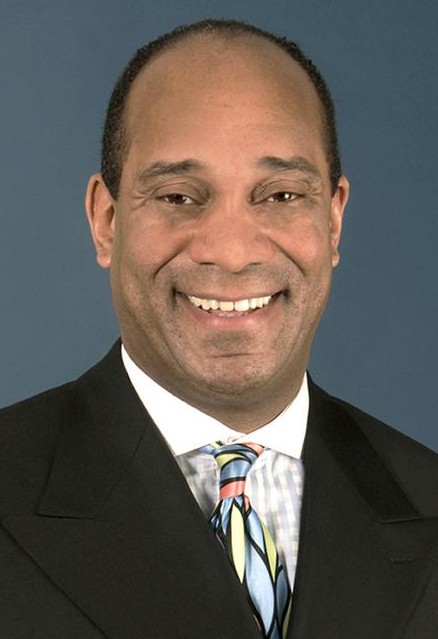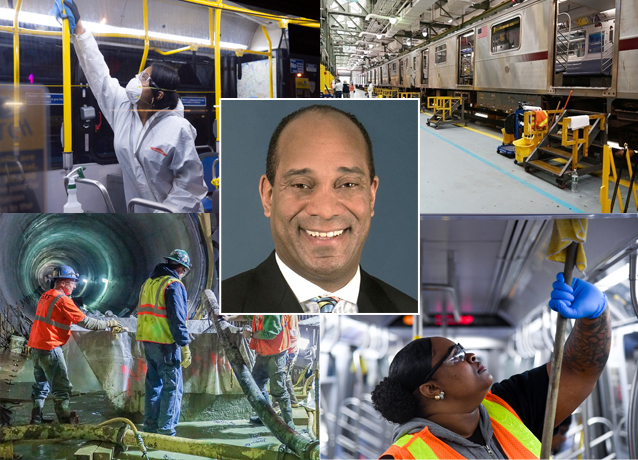At a time when all businesses need as much support as possible due to the ongoing pandemic, the MTA has been a leader in providing opportunities to businesses that have historically been shut out of government contracts: minority-owned and women-owned business enterprises.
As such, we read with great interest Shabazz Stuart’s op-ed piece in Streetsblog about the pace at which city government awards contracts to these companies. We know the procurement process has historically been exclusive, but the fact is, there are ways that government organizations can get it right and provide opportunities to large numbers of small home-grown minority-owned companies. The MTA has done it, and other government agencies can, too.
Since the virus arrived in New York back in March, the MTA has awarded $73.1 million in contracts to more than 26 NYS-certified and MTA-certified minority-owned and women-owned business enterprises to supply the necessary equipment, supplies and professional services needed for our response. This represents 32 percent of procurement contract funds.

The agency has also purchased a total of $230.1 million in coronavirus-related materials and services to distribute across New York City Transit, Metro-North Railroad, Long Island Rail Road, Bridges and Tunnels, MTA Bus Company, MTA Construction & Development and MTA Headquarters.
A public health emergency is no excuse to sacrifice a commitment to diversity. We recognize that it can only benefit the MTA to create a larger pool of diverse, qualified contractors who can compete for and complete construction projects safely, efficiently and within budget.
The MTA took its direction from Gov. Cuomo, who made it a priority to encourage ongoing and meaningful participation by MWBEs by enforcing a mandate to look beyond the established list of contractors. Since then, we have delivered big time: out of 97 New York State agencies and public authorities, the MTA ranks number one in dollars paid to New York City-certified MWBEs — paying $736 million to these businesses during the 2018-2019 fiscal year. This represents nearly 30 percent of all contracts.
How did we get to this point? The simplified answer is accountability, innovation and outreach.
The MTA’s Department of Diversity and Civil Rights arranges our participation in various events and forums to promote the availability of contracting opportunities with the MTA. It works with the community of providers to: ensure understanding of how to do business with us, become aware of any upcoming requirements and provide guidance once they are awarded contracts to ensure successful performance. The success is focused on integrating NYS-certified MWBEs into the MTA’s Procurement Processes.
By changing state Finance Law, the MTA’s Small Business Development Program provides another avenue of support through classroom and on-the-job training in the MTA environment. Since its inception, the program alone has awarded more than $446 million in 427 contracts. In the last fiscal year alone, $86 million was awarded to small businesses with 79 percent of contracts going to NYS certified MWBEs. The program is such a runaway success that the governor extended it for another 10 years.
Increasing the Discretionary Program Threshold from $400,000 to $1 million per assignment was also critical in introducing diversity in the contracting process. Once again, by working with the legislature and the governor’s office, we employed this strategy to increase MTA spend directly with state-certified MWBEs in the areas of professional services. As an example of our success, we recently retained the services of 28 state-certified MWBE Information Technology providers and to date we have issued more than 600 direct assignments, totaling $109 million.
The awarded contracts represent an important opportunity for these underrepresented companies to further prosper. These procurements can be lucrative and game-changing for any enterprise, providing employees with a path toward home ownership, improved health care options and better educational opportunities. No group should be excluded from that.
Government is meant to work for all people, all the time. It’s on us to dismantle the oppressive roadblocks to equality that prevent so many deserving businesses from being able to compete. Change is possible and it’s the right thing to do. The tools exist, and, at the MTA, we’re using them.
Michael Garner is the chief diversity officer at the MTA.






